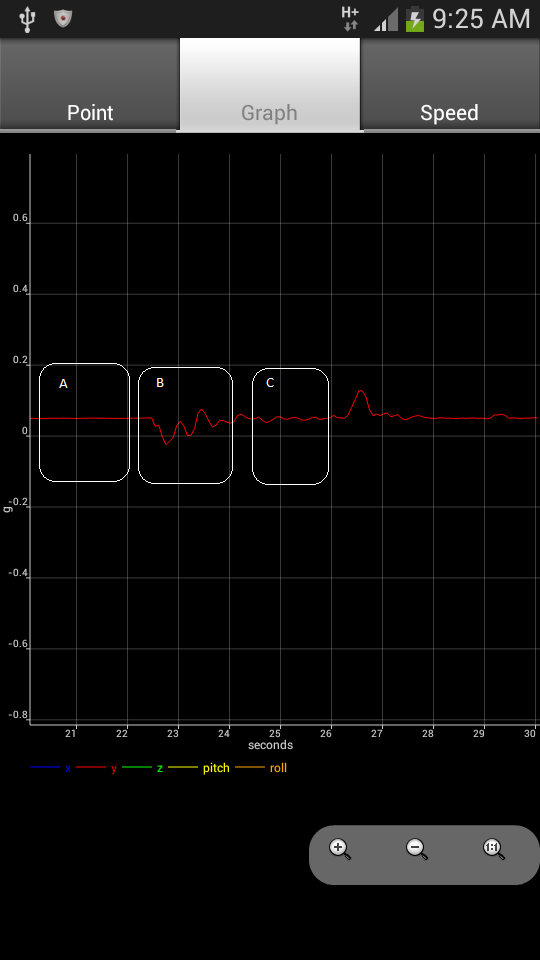Hello,
I’m being implementing a FOC controller for a PMSM motor, using a TMS320F28016 with a 256 pulses encoder. I’m close to the end of my project, but right now I have some problems. Specifically, when the motor is stopped with torque, if I set the speed value, the acceleration oscillates. In order to clarify, I copy an image with the acceleration.
- Zone A. The motor is stopped with torque. The acceleration is 0.
- Zona B. I set up a new speed value with only two points, from speed_low to speed_medium. I hope a triangle waveform (as zona D but negative), but I get a oscillation.
- Zona C. The motor is into the steady-state, with no acceleration.
Any idea? I’m a little bit loose. I’m thinking in modify the speed PID again, but I prefer wait an expert opinion before change the regulators.
Thank you in advance.


